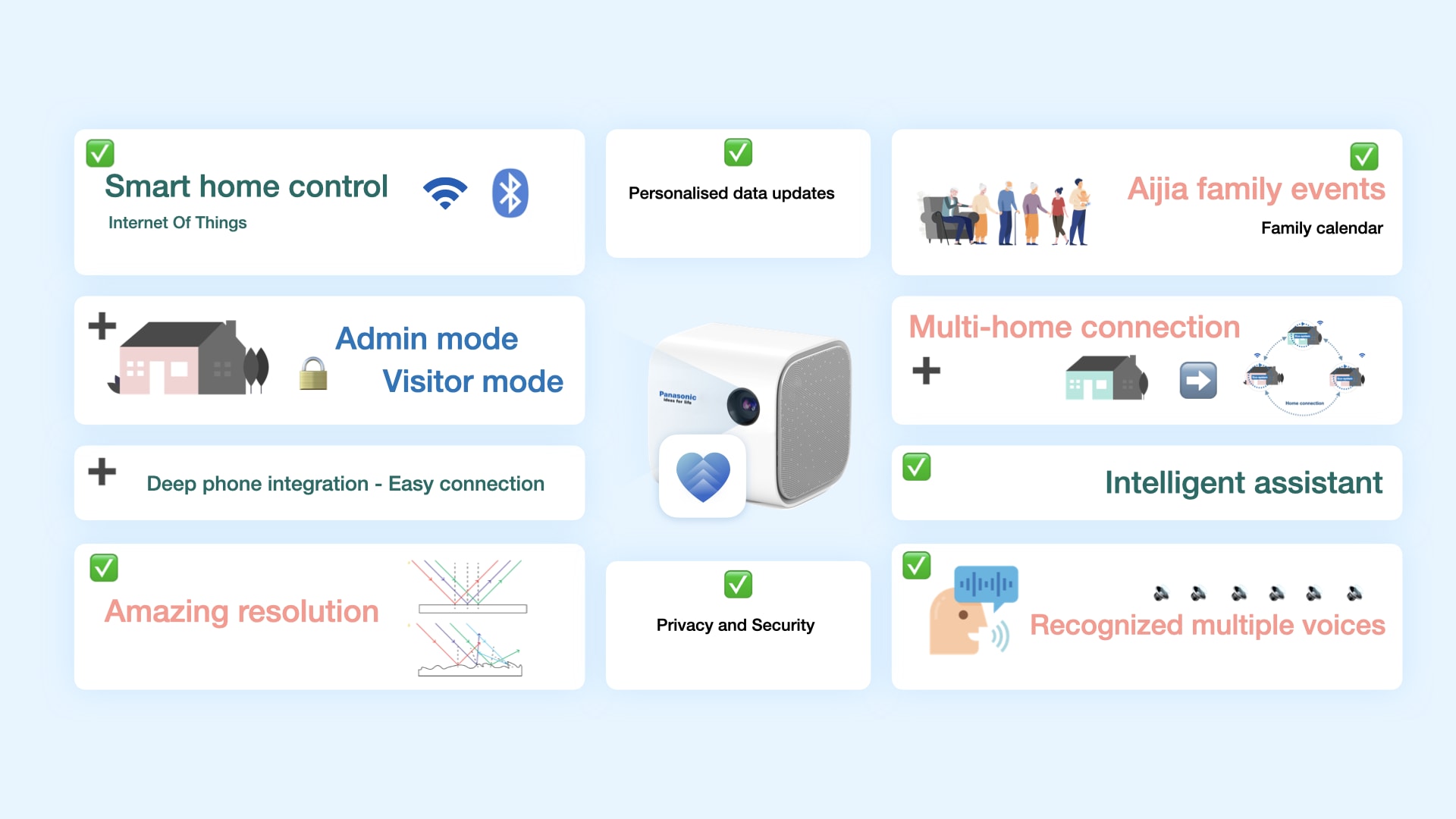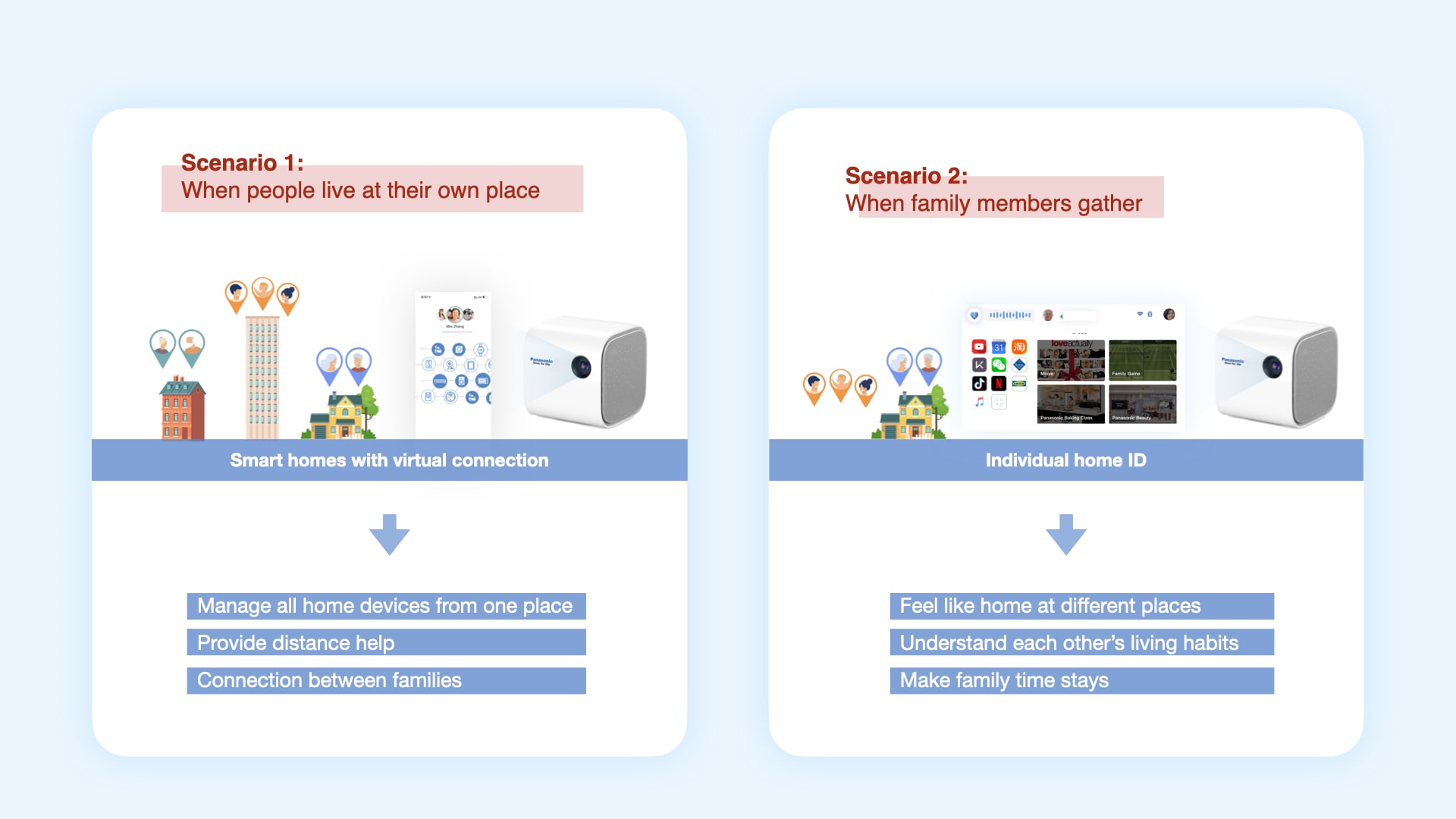Li Ning is a passionate and empathetic MA service design student with various experiences in design. Eager to generate feasible, viable, and desirable innovation by balancing user experience and business value. She is a problem solver who keeps an open mind, this coupled with her dedication and communication skills that also make her a great team player.
Li Ning


I studied interactive art and technology in Canada, and I have always had an interest in healthcare. My dissertation is about involving dementia care with service design, and my service design practice is driven to create solutions for a better wellbeing. I am also a design research intern at Panasonic, where I explore healthcare in depth.
My final project partnering with Panasonic wishes to explore the possibilities of incorporating home care services to enhance family relationships and their wellbeing.
Panasonic Aijia — In China, because of the one-child policy, it is difficult for young families to take care of their own family and thier senior parents at the same time. How might we help family members of different generations to connect and understand each other, thereby enhance family relationship?
Problem and Service Proposition

FILIAL PIETY AND 4-2-1 STRUCTURE — There are about 20 million families which only have one child in China. The one-child policy made many families towards a 4-2-1 structure. It means that two adults of the working-age need to support four older persons and one child. Meanwhile, filial piety is deeply rooted in Chinese culture, which means to be good to one's parents and to take care of them. The balance between taking care of seniors and their own families can be extremely difficult to manage.

LESS WORRIES, BETTER CONNECTION — Aijia, meaning love your family in Chinese, aims to help family members of different generations to connect and understand each other, thereby enhance the family relationship. Panasonic Aijia creates multi-home connections with personalized living experiences at different homes, making individuals feel at home when they visit their families, as well as connecting family members virtually when not together.

MAKE IT HAPPEN — Panasonic Aijia is a smart portable projector that works as a home hub connecting all home appliances as well as multiple homes with consent. Firstly, it will be integrated with Panasonic's existing smart home app to create a more tailored and seamless experience at home. Secondly, Panasonic Aijia extends the smart home to multi-home connection with admin mode and visitor mode. Lastly, the Ai assistant of the projector can recognize multiple voices and makes users feel at home at different places.

CONNECT WITH YOUR FAMILY AND YOURSELF — When people live in their own place, Aijia provides smart homes with virtual connections. It also lets users provide distance help for seniors. Lastly, users can also communicate with each other more often and build a stronger connection. When the family members visit each other, Aijia’s individual home ID helps visitors to feel at home at different places, reduce conflicts between family members and make family times stays through events.